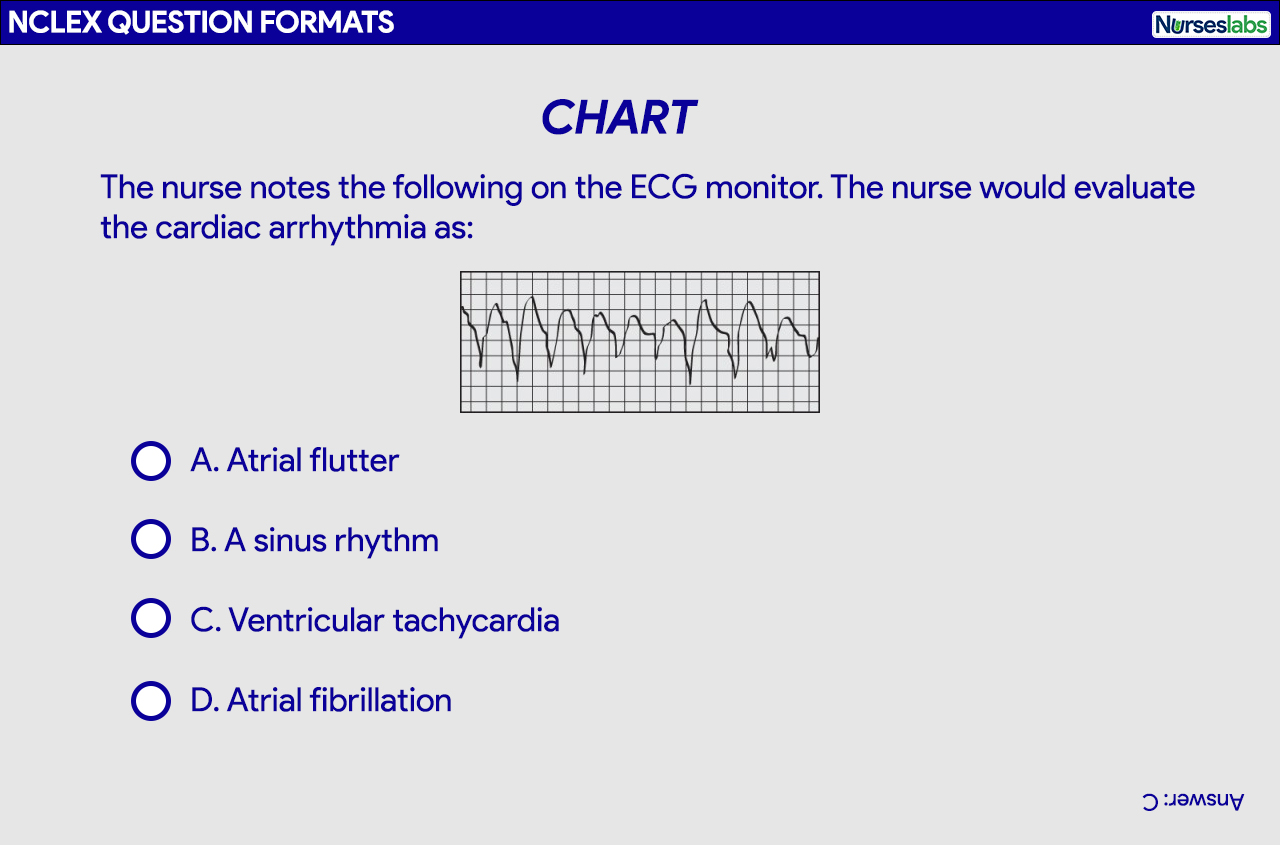NCLEX Exam Questions: Mastering the Art of Critical Thinking

The NCLEX exam questions represent the culmination of your nursing education journey, serving as the final assessment of your readiness to practice as a licensed nurse. These carefully crafted questions go far beyond simple recall of facts; they are designed to evaluate your ability to think critically, make sound clinical judgments, and apply nursing knowledge in complex, real-world scenarios. Understanding the nature, structure, and intent of NCLEX exam questions is crucial for success on this high-stakes examination.
Unlike the straightforward questions you may have encountered throughout nursing school, NCLEX exam questions are written at the application and analysis levels of cognitive ability. They present complex clinical scenarios that require you to synthesize information from multiple sources, prioritize care, and select the most appropriate nursing intervention from among several plausible options. This approach reflects the reality of nursing practice, where decisions must be made quickly and accurately based on incomplete information and competing priorities.
The Philosophy Behind NCLEX Exam Questions
The development of NCLEX exam questions is guided by a clear philosophy: to ensure that newly licensed nurses can provide safe, effective care to patients across diverse settings and populations. This philosophy influences every aspect of question construction, from the clinical scenarios presented to the answer choices provided.
Each question is written by experienced nurses and nurse educators who understand both current nursing practice and the challenges faced by new graduates. These item writers draw from real clinical experiences, current evidence-based practice guidelines, and established nursing standards to create questions that accurately reflect the knowledge and skills required for entry-level nursing practice.
The questions undergo rigorous review and testing processes before appearing on the actual exam. This includes content validation by subject matter experts, statistical analysis to ensure appropriate difficulty levels, and pilot testing with actual candidates to identify any issues with question clarity or fairness.
The result is an examination that truly measures nursing competency rather than test-taking ability or memorization skills. While this makes the exam more challenging, it also ensures that those who pass are genuinely prepared for the responsibilities of nursing practice.
Understanding Question Structure and Format
NCLEX exam questions follow a consistent structure designed to present clinical information clearly and test specific competencies. Understanding this structure can help you approach questions more systematically and improve your performance.
The typical NCLEX question begins with a clinical scenario that provides essential background information. This scenario might describe a patient’s condition, relevant history, current symptoms, or treatment plan. The scenario is followed by a question stem that asks what the nurse should do, what finding the nurse should expect, or what response would be most appropriate.
Four answer choices are then provided, with only one correct answer. However, the “correct” answer isn’t always the most obvious choice; it’s the answer that represents the safest, most appropriate nursing action based on current standards of practice. The incorrect options, known as distractors, are designed to be plausible but ultimately inappropriate for the given situation.
This structure requires you to read carefully, analyze the situation presented, and apply your nursing knowledge to select the best answer. Simply recognizing familiar terms or concepts isn’t sufficient; you must understand how these concepts apply to the specific scenario presented.
Types of NCLEX Exam Questions
The NCLEX includes several different question formats, each designed to test specific aspects of nursing competency. While traditional multiple-choice questions remain the most common format, alternative item formats are increasingly used to more accurately simulate real-world nursing practice.
Traditional Multiple Choice Questions present a scenario followed by four options, requiring you to select the single best answer. These questions test your ability to analyze clinical situations and choose appropriate nursing actions. Success with these questions requires careful reading, systematic analysis, and the application of nursing principles.
Multiple Response Questions (Select All That Apply) require you to choose all correct answers from a list of options. These questions can be particularly challenging because there’s no partial credit; you must select all correct answers and no incorrect ones to receive credit. They often test knowledge of signs and symptoms, nursing interventions, or factors that contribute to specific conditions.
Fill-in-the-Blank Questions require you to calculate and enter a numerical answer, typically related to medication dosages, IV flow rates, or intake and output calculations. These questions test your mathematical skills and ability to perform accurate clinical calculations under pressure.
Ordered Response Questions ask you to arrange actions or steps in the correct sequence. These questions test your understanding of priorities and proper procedures. They might involve steps in a nursing procedure, the order in which you would assess multiple patients, or the sequence of actions during an emergency.
Hot Spot Questions present an image and ask you to click on a specific area. These questions might ask you to identify anatomical structures, locate appropriate injection sites, or indicate where you would place monitoring equipment.
Chart/Exhibit Questions provide additional information through tabs or exhibits that you must review to answer the question. These questions simulate the real-world experience of reviewing patient records and test your ability to synthesize information from multiple sources.
Content Areas Covered in NCLEX Exam Questions
NCLEX exam questions are distributed across four major client needs categories, each representing a different aspect of nursing practice. Understanding these categories and their relative weights can help you focus your preparation efforts effectively.
Safe and Effective Care Environment comprises 17-23% of the NCLEX-RN and includes two subcategories: Management of Care and Safety and Infection Control. Questions in this category focus on coordinating care, supervising other healthcare team members, maintaining a safe environment, and preventing healthcare-associated infections. You might encounter questions about delegation, prioritization, legal and ethical issues, or infection control procedures.
Health Promotion and Maintenance represents 6-12% of the exam and covers health screening, disease prevention, and growth and development across the lifespan. These questions often involve patient teaching, health promotion activities, immunizations, or developmental milestones. They test your ability to help patients maintain health and prevent illness.
Psychosocial Integrity accounts for 6-12% of the exam and addresses mental health concepts, therapeutic communication, and psychosocial adaptations to illness. Questions might involve caring for patients with mental health disorders, providing emotional support during crisis situations, or using therapeutic communication techniques.
Physiological Integrity is the largest category, comprising 38-62% of the exam. It includes four subcategories: Basic Care and Comfort, Pharmacological and Parenteral Therapies, Reduction of Risk Potential, and Physiological Adaptation. These questions cover all body systems, nursing interventions, medication administration, and responses to illness or injury.
Critical Thinking in NCLEX Exam Questions
The hallmark of NCLEX exam questions is their emphasis on critical thinking and clinical judgment. Rather than testing your ability to recall isolated facts, these questions require you to analyze complex situations, synthesize information from multiple sources, and make reasoned decisions about patient care.
Critical thinking in the context of NCLEX questions involves several key processes. You must be able to recognize relevant information within a clinical scenario, distinguish between important and unimportant data, and identify relationships between different pieces of information. This requires a deep understanding of pathophysiology, pharmacology, and nursing principles.
You must also be able to apply the nursing process systematically. This means knowing when to assess versus when to intervene, understanding the relationship between nursing diagnoses and interventions, and recognizing when evaluation indicates the need for plan modifications.
Priority setting is another crucial aspect of critical thinking tested on the NCLEX. You must be able to determine which patient needs immediate attention, which interventions should be implemented first, and how to manage multiple competing demands on your time and attention.
The questions often present scenarios where multiple answers could be correct in different circumstances. Your task is to identify which answer is most appropriate for the specific situation presented, considering factors such as patient safety, evidence-based practice, and nursing standards.
Common Question Patterns and Strategies
Recognizing common patterns in NCLEX exam questions can help you approach them more systematically and improve your success rate. While each question is unique, certain patterns appear frequently and can be addressed using specific strategies.
Priority Questions ask you to identify the most important action, the patient who should be seen first, or the intervention that takes precedence. These questions often include keywords like “first,” “priority,” “most important,” or “initial.” Use frameworks like the ABCs (airway, breathing, circulation), Maslow’s hierarchy of needs, or the nursing process to guide your decision-making.
Assessment vs. Intervention Questions present options that include both assessment actions and interventions. Remember that assessment generally comes before intervention unless the patient is in immediate danger. Look for clues in the scenario that indicate whether assessment has already been completed or if immediate intervention is required.
Delegation Questions test your understanding of appropriate task assignment and supervision. Remember that assessment, teaching, and evaluation cannot be delegated to unlicensed assistive personnel. Consider the complexity of the task, the stability of the patient, and the competency of the person to whom you’re delegating.
Medication Questions are abundant on the NCLEX and require knowledge of drug actions, side effects, and nursing considerations. Focus on the therapeutic effect you’re trying to achieve, potential adverse reactions to monitor, and appropriate patient teaching. Don’t try to memorize every medication; instead, understand drug classifications and general principles.
Communication Questions test your ability to use therapeutic communication techniques and respond appropriately to patient concerns. Look for responses that encourage further communication, show empathy and understanding, and avoid giving advice or false reassurance.
Analyzing Sample NCLEX Exam Questions
Let’s examine several representative NCLEX exam questions to understand how critical thinking principles apply in practice.
Sample Question 1:
A nurse is caring for a patient with heart failure who is receiving furosemide (Lasix). Which assessment finding would be most concerning to the nurse?
A) Urine output of 50 mL in the past hour
B) Serum potassium level of 2.8 mEq/L
C) Blood pressure of 110/70 mmHg
D) Weight loss of 2 pounds since yesterday
Analysis: This question tests knowledge of furosemide’s mechanism of action and potential complications. Furosemide is a loop diuretic that can cause significant potassium loss. A serum potassium level of 2.8 mEq/L indicates severe hypokalemia, which can lead to dangerous cardiac arrhythmias. While the other findings require monitoring, the low potassium level represents the most immediate threat to patient safety.
Sample Question 2:
A nurse is preparing to administer medications to four patients. Which patient should receive their medication first?
A) A patient with diabetes scheduled to receive regular insulin before breakfast
B) A patient with hypertension due for their morning antihypertensive medication
C) A patient with pneumonia who needs their antibiotic that was due 30 minutes ago
D) A patient with chronic pain requesting their scheduled pain medication
Analysis: This priority question requires consideration of medication timing and patient safety. The patient with diabetes needs insulin before eating to prevent hyperglycemia, making this the highest priority. While the antibiotic is overdue, a 30-minute delay is not critical. The other medications, while important, are not time-sensitive in the same way.
Preparing for Different Question Types
Success on NCLEX exam questions requires specific preparation strategies tailored to different question formats and content areas. Generic study approaches are insufficient; you need targeted practice with the types of questions you’ll encounter on the exam.
For traditional multiple-choice questions, focus on developing systematic approaches to question analysis. Practice identifying key information in the scenario, determining what the question is really asking, and eliminating obviously incorrect options. Work on recognizing common question patterns and applying appropriate frameworks for decision-making.
Multiple response questions require a different approach. You must evaluate each option independently, determining whether it’s correct or incorrect based on the scenario presented. Don’t look for patterns in the number of correct answers; focus on the content of each option.
Calculation questions demand accuracy and attention to detail. Practice dosage calculations regularly, using the same methods you’ll use on the exam. Double-check your work and ensure your answer makes clinical sense. Remember that most calculation errors result from careless mistakes rather than lack of knowledge.
For ordered response questions, think through the logical sequence of actions. Consider factors such as patient safety, the nursing process, and standard procedures. Practice with questions that require you to prioritize multiple patients or sequence nursing interventions.
The Role of Practice in Mastering NCLEX Questions
Regular practice with NCLEX-style questions is essential for developing the critical thinking skills and test-taking strategies needed for success. However, the quality of your practice is more important than the quantity. Simply answering hundreds of questions without understanding the rationales provides little benefit.
Approach practice questions as learning opportunities rather than just assessment tools. After answering each question, read the rationale for both the correct and incorrect answers. Try to understand why the correct answer is best and why the other options are inappropriate. This process helps you develop the analytical skills needed for the actual exam.
Keep track of your performance patterns. Are you consistently missing questions from certain content areas? Do you struggle with specific question types? Are you making careless errors or fundamental knowledge mistakes? Use this information to guide your continued preparation.
Practice under conditions similar to the actual exam. Time yourself, avoid distractions, and answer questions without looking up information. This helps you develop the stamina and focus needed for the real test.
Don’t just practice questions in isolation; integrate them with your content review. When you miss a question about heart failure, for example, review the pathophysiology, medications, and nursing care for patients with this condition. This integrated approach reinforces your learning and helps you see connections between different concepts.
Building Confidence Through Understanding
Confidence is crucial for NCLEX success, and true confidence comes from understanding rather than memorization. When you understand the underlying principles of nursing practice, you can apply them to novel situations and make sound clinical judgments even when faced with unfamiliar scenarios.
Focus on developing a deep understanding of core nursing concepts rather than trying to memorize every possible fact. Understand how the body systems work, how diseases affect normal function, and how nursing interventions address patient problems. This foundational knowledge will serve you well regardless of the specific questions you encounter.
Practice explaining nursing concepts to others. If you can teach a concept clearly, you truly understand it. This approach also helps you identify areas where your understanding might be superficial.
Connect new information to concepts you already understand. This creates a web of knowledge that’s easier to remember and apply. For example, when learning about a new medication, connect it to the drug classification, the condition it treats, and the nursing care required.
Conclusion
NCLEX exam questions represent the gold standard for assessing nursing competency at the entry level. They are carefully designed to test not just what you know, but how well you can apply your knowledge in complex clinical situations. Success requires more than memorization; it demands the development of critical thinking skills, clinical judgment, and the ability to prioritize care effectively.
By understanding the philosophy behind these questions, recognizing common patterns, and practicing systematically, you can develop the competencies needed to excel on the NCLEX. Remember that these questions are designed to ensure that new nurses can practice safely and effectively. The challenge they present reflects the complexity and responsibility of nursing practice itself.
Approach your preparation with dedication and confidence, knowing that mastering NCLEX exam questions is not just about passing a test—it’s about developing the skills you’ll need throughout your nursing career to provide excellent patient care and make sound clinical decisions under pressure.
References:
[1] National Council of State Boards of Nursing (NCSBN). NCLEX-RN Test Plan. Available at: https://www.ncsbn.org/public-files/2023_RN_Test%20Plan_English_FINAL.pdf
[2] National Council of State Boards of Nursing (NCSBN). NCLEX Examinations Webinar Series: NCLEX Item Writing and Item Review. Available at: https://www.ncsbn.org/recorded-webinar/nclex-examinations-webinar-series-nclex-item-writing-and-item-review
[3] Kaplan Test Prep. Mastering NCLEX Priority Questions. Available at: https://www.kaptest.com/study/nclex/nclex-question-strategies-priority-questions/
[4] Simple Nursing. Mastering NCLEX Priority Questions: Strategies for Success. Available at: https://simplenursing.com/nclex-priority-questions/
[5] Nurse.org. Top NCLEX Practice Questions You Should Study. Available at: https://nurse.org/articles/how-to-pass-nclex-the-first-time/



